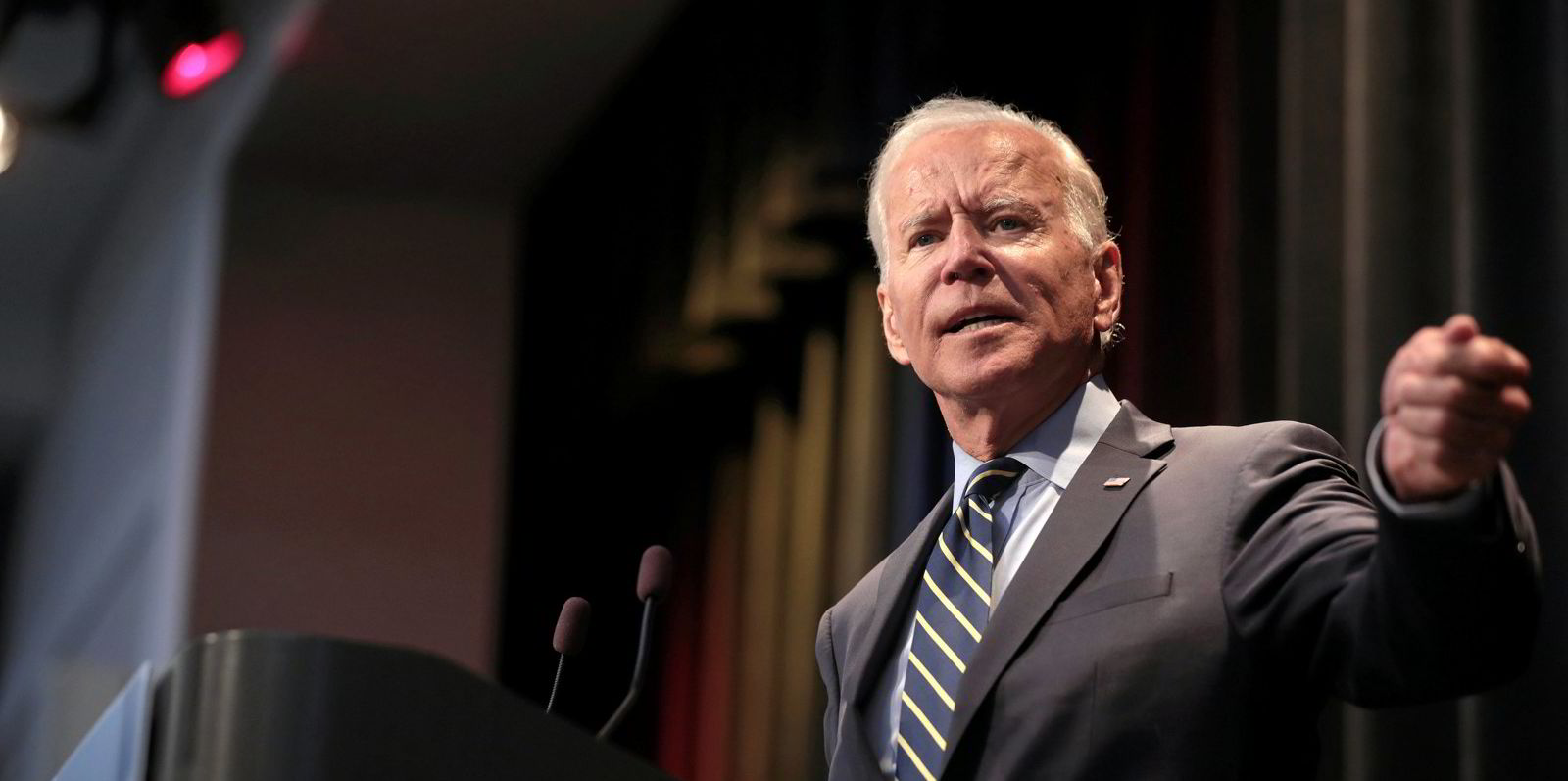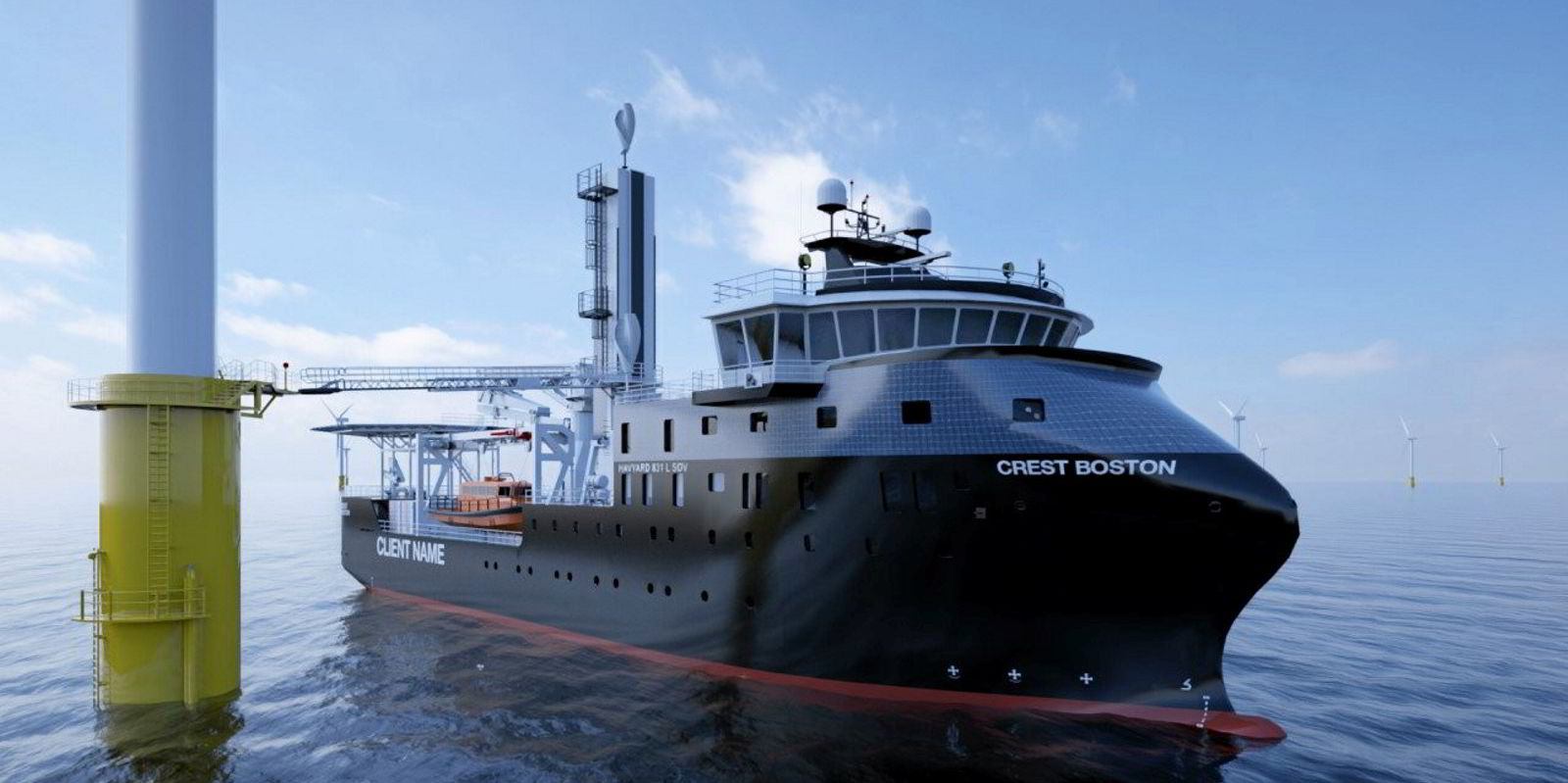US maritime policy looks like it could be up for review under new President Joe Biden.
With scepticism swirling around global trade, Covid-19 exposing vulnerabilities in the global supply chain, the emergence of China as a major rival on the world stage and increasing urgency around climate change, it appears the US government is ready to take a look at shipping, Blank Rome Government Relations senior advisor David Jensen said.
"Suffice it to say, the current environment is pretty dynamic. In fact, it’s not really a reach to say maritime matters in the United States are at an important inflexion point," Jensen said during a Blank Rome webinar discussing the Biden administration and shipping on Tuesday.
"To a certain extent change is going to happen. That seems almost certain.”
Jensen said issues like the diminished US-flagged fleet, reduced military sealift capabilities, the shrinking number of US shipyards and the need for new port infrastructure are now "viewed for what they are, which are major liabilities" to the country's national security.
Meanwhile, the operating budgets for the US Coast Guard, Federal Maritime Commission and Maritime Administration have all been raised and maritime-focused programmes authorised.
The Biden administration has also pushed forward on offshore wind, voiced his support for the Jones Act and could look for the US to take a role in decarbonising the global fleet, with Jensen described as an economic opportunity as the shipping industry seeks alternative ways to power ships.
"We need to know, does the US stake out a leadership position and potentially reap the economic benefits or will it remain passive and allow this growth opportunity to wain?" he said.
There was some expectation leading into the 2020 election that, should Democratic Party candidate Biden win, a new perspective on maritime policy could be on the table.
In the end, Biden won and Democrats gained majorities in the House of Representatives and Senat, albeit slightly in both cases.
Jensen said these issues were largely bipartisan in nature, at least at the committee and subcommittee level.
Sanctions changes?
One thing that may not change much in the near-term is the US sanctions regime, Blank Rome partner Matthew Thomas said during the webinar.
He said indirect talks in Vienna between the US and Iran last week yielded some progress, but still left a wide gulf between Iran returning to compliance with the scuttled 2015 nuclear deal that saw it limit uranium enrichment in exchange for lifted sanctions.
Iran has said it was sanctions lifted before it stops enriching uranium, while the US said Iran must stop first.
Even if some sanctions are lifted, Thomas said not all would be.
“It’s important from a compliance standpoint to not let your guard down, not take risks until there's a shift in US sanctions," he said.
"We don’t want to see the triggering of banking law violations, anti-money laundering violations as we are transitioning to a new and different landscape on Iran."
Thomas added that the US would likely keep up the pressure on Venezuela and Russia and that any changes in posture toward Cuba and North Korea would not be forthcoming.







